Toyota Highlander vs VW Tayron - Forskelle og priser i sammenligning
Hvem løber med sejren?
Samlet set fremstår VW Tayron som ligger en anelse foran og sikrer sig dermed titlen som DriveDuel Champion.
Den imponerer med et mere afbalanceret helhedsindtryk og er den mest alsidige i hverdagen.
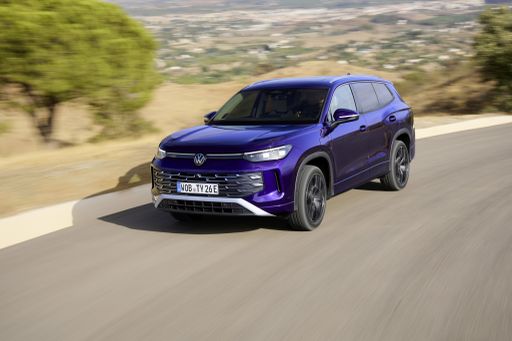 @ Volkswagen AG / VW Media
@ Volkswagen AG / VW Media
VW Tayron
Toyota Highlander
Toyota Highlander kører som en rolig katedral på hjul — rummelig, sikker og komfortabel, skabt til familielivet uden unødvendigt drama. Den lægger vægt på funktionalitet og tryghed frem for bling, så du får massiv brugsværdi og minimal bekymring i hverdagen.
Detaljer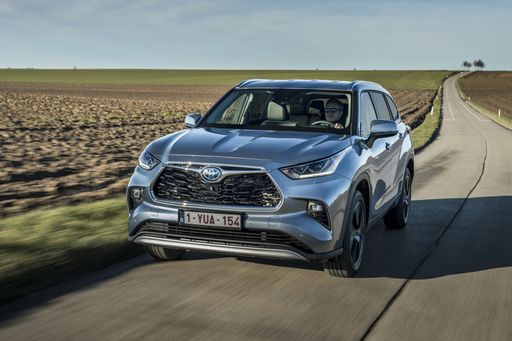 @ Toyota Motor Corporation
@ Toyota Motor Corporation
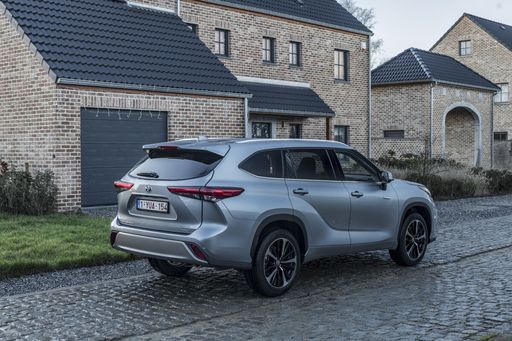 @ Toyota Motor Corporation
@ Toyota Motor Corporation
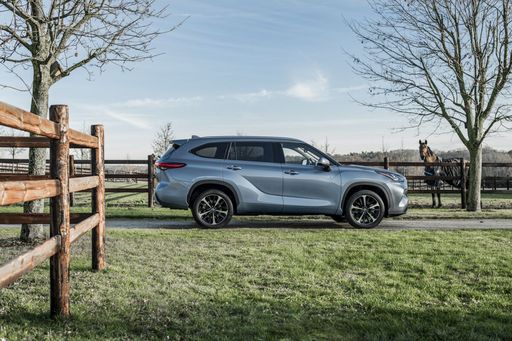 @ Toyota Motor Corporation
@ Toyota Motor Corporation
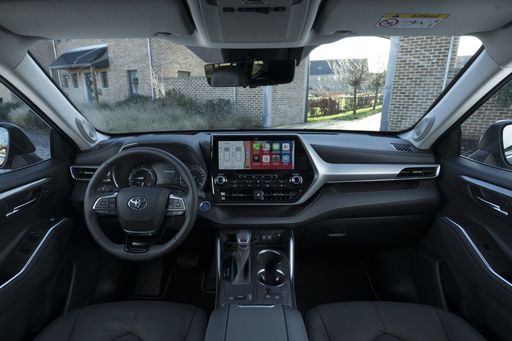 @ Toyota Motor Corporation
@ Toyota Motor Corporation
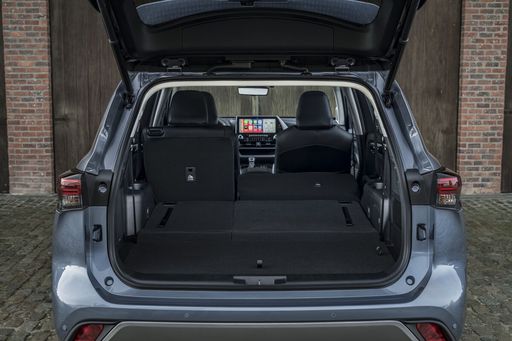 @ Toyota Motor Corporation
@ Toyota Motor Corporation
VW Tayron
VW Tayron er Volkswagens rolige og velafbalancerede SUV, der prioriterer komfort, rummelighed og praktisk hverdag fremfor vild køredynamik. Interiøret føles solidt og veludstyret, og i praksis er Tayron et trygt køb for dem, der vil have en smart familiebil uden alt for meget drama — kører du for sjov, så kig et andet sted.
Detaljer @ Volkswagen AG / VW Media
@ Volkswagen AG / VW Media
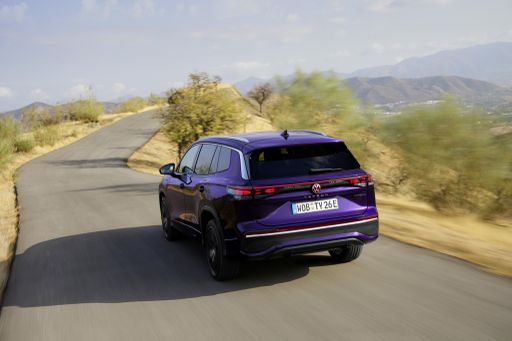 @ Volkswagen AG / VW Media
@ Volkswagen AG / VW Media
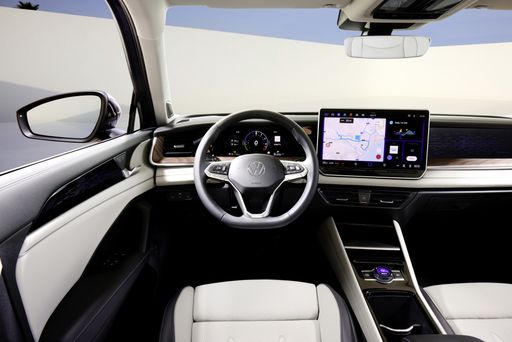 @ Volkswagen AG / VW Media
@ Volkswagen AG / VW Media
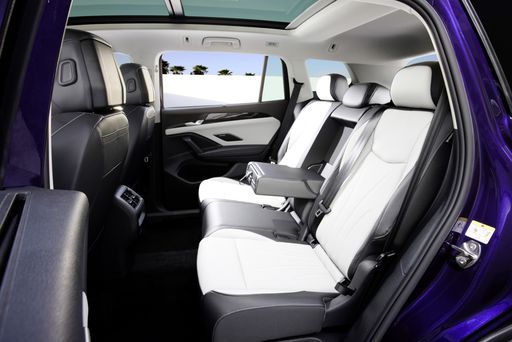 @ Volkswagen AG / VW Media
@ Volkswagen AG / VW Media
 @ Toyota Motor Corporation
@ Toyota Motor Corporation
|
 @ Volkswagen AG / VW Media
@ Volkswagen AG / VW Media
|
|
|
|
Omkostninger og forbrug |
|
|---|---|
|
Pris
-
|
Pris
362100 - 487400 dkr
|
|
Forbrug L/100km
-
|
Forbrug L/100km
1.5 - 8.5 L
|
|
Forbrug kWh/100km
-
|
Forbrug kWh/100km
-
|
|
Elektrisk rækkevidde
-
|
Elektrisk rækkevidde
116 - 123 km
|
|
Batterikapacitet
-
|
Batterikapacitet
19.70 kWh
|
|
co2
-
|
co2
33 - 192 g/km
|
|
Tankkapacitet
-
|
Tankkapacitet
45 - 58 L
|
Dimensioner og karrosseri |
|
|---|---|
|
Karrosseri
-
|
Karrosseri
SUV
|
|
Sæder
-
|
Sæder
5
|
|
Døre
-
|
Døre
5
|
|
Egenvægt
-
|
Egenvægt
1682 - 1948 kg
|
|
Bagagerumskapacitet
-
|
Bagagerumskapacitet
705 - 885 L
|
|
Længde
-
|
Længde
4792 mm
|
|
Bredde
-
|
Bredde
1853 - 1866 mm
|
|
Højde
-
|
Højde
1666 - 1668 mm
|
|
Maksimal bagagerumskapacitet
-
|
Maksimal bagagerumskapacitet
1915 - 2090 L
|
|
Lastkapacitet
-
|
Lastkapacitet
489 - 566 kg
|
Motor og ydeevne |
|
|---|---|
|
Motortype
-
|
Motortype
Benzin mild-hybrid, Diesel, Benzin, Plugin-hybrid
|
|
Transmission
-
|
Transmission
Automatisk
|
|
Transmissionsdetaljer
-
|
Transmissionsdetaljer
Automatisk dobbeltkobling
|
|
Drivtype
-
|
Drivtype
Forhjulstræk, Firehjulstræk
|
|
Effekt HK
-
|
Effekt HK
150 - 272 HK
|
|
Acceleration 0-100 km/t
-
|
Acceleration 0-100 km/t
6.1 - 9.7 s
|
|
Maks. hastighed
-
|
Maks. hastighed
204 - 240 km/h
|
|
Moment
-
|
Moment
250 - 400 Nm
|
|
Antal cylindre
-
|
Antal cylindre
4
|
|
Effekt kW
-
|
Effekt kW
110 - 200 kW
|
|
Motorstørrelse
-
|
Motorstørrelse
1498 - 1984 cm3
|
Generelt |
|
|---|---|
|
Modelår
-
|
Modelår
2025
|
|
CO2-effektivitetsklasse
-
|
CO2-effektivitetsklasse
E, F, G, B
|
|
Mærke
-
|
Mærke
VW
|
Hvilke drivmuligheder tilbyder VW Tayron?
Tilgængelig som Forhjulstræk eller Firehjulstræk.
De viste priser og data er estimater baseret på tyske listepriser og kan variere fra land til land. Disse oplysninger er ikke juridisk bindende.
